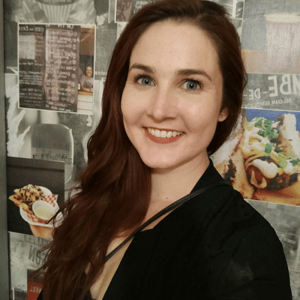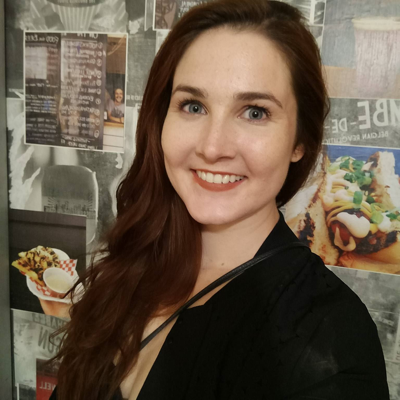Journaling is something I do for decades and I cannot even imagine where I would be without it. I might not even be the same person I am now if I haven’t picked up a pen one day. I thought I’d be documenting my life journey. Little did I know that I was instead embarking on a journey of its own kind. For journaling is a journey and you learn many things along the way.
It taught me emotions processing
I started my first diary when I was about thirteen. It made sense – teen years is the time when most kids move away from drawing as the primary means of self-expression and try writing instead. For me, it was more about curiosity and imitation. Girls in teen movies always had a diary with a cute little heart-shaped lock and they filled it with their dreams and accounts of their first crushes.
I didn’t know what I to write about but it was fancy activity girls of my age were supposed to engage in, so I made my tentative attempts. First entries were three to five sentences long and outlined the major happenings of the day.
Several years later I couldn’t wait to get home from school and pour my soul, my frustrations, and my fears onto the pages of the notebook. It saved angsty, moody, self-conscious me not only by giving me a space to vent, but by forcing me to put my feelings into words, and this way to acknowledge them.
I learned how to untangle the muddled mess of emotions that made me cry with no apparent reason and trace each line to its source. Instead of “I hate my life!” more aware mindset emerged, where I could get to the bottom of things and was able therefore to find solutions. I knew when I was overwhelmed with tests, when I was irritable because sleep-deprived or hungry, when I felt threatened by bullies, when I was vexed by my parents’ overprotection, and when I was flat-out existentially terrified.
When I started college I quit my diary mainly because I had very little time for anything apart from assignments and because I didn’t need it. Or so I thought.
It relieved my anxiety
Years later I returned to it. Getting a college degree was very taxing. I was anxious and depressed, with my mental health threatened by overstrain, and with a complicated relationship on top of it – ready to topple over. Then I rediscovered the healing power of blank page and ink.
I suffered from insomnia and was unable to fall asleep because thoughts flashed madly through my overheated brain. I simply couldn’t switch them off. Only after an hour-long nightly session of filling page after page did I feel unwound enough to take a deep breath and close my eyes.
Of course, getting something out of your chest is therapeutic in its own right. You find it easier to deal with, once it’s written down. It no longer haunts you, it is pinned down on the page. However, journaling made more for me. It helped me analyze sources of my anxieties, deal with my fears, overcome inner barriers. The technique never failed me.
Now when I feel down and I don’t know what the reason is, I start writing and by the time I’ve finished I know the answer. When I am upset about something I cannot change, I write about it and I see the bright side of it, or at least I find enough composure to cope. When I feel like I’m adrift, I write and I feel in control again. I see that while I might not be in the best possible place at the moment, it’s only a small patch on my way, and my way is shaped by my choices. This knowledge is empowering.
It put things into perspective
Now that I’ve been keeping a journal for years, I sometime reread individual entries. More often than not they make me smile. It’s funny how I used to exaggerate problems, how I used to fixate on something that was not an issue, how I wasted my time worrying and pitying myself. It’s a precious lesson that would be impossible without a journal. If I haven’t written it down, I’d forgotten about it. Every new problem would still feel like something insurmountable. Now I know better.
Sometimes even by the end of a writing session the initial problem that has been torturing me the whole day already seems trivial and almost nonexistent. In one’s head, there are all sorts of filters and optics that distort the truth and mask your motives. Yet when you write the facts down they are just that – only facts, without connotations, without your biases attached to them. They become data you can make sense of.
Writing a journal entry is like peeling off layers of prejudices, learned things, fears, and phantoms, to get to your innermost core and be honest with yourself. There’s great peace in that.
It made me good with words
Journaling becomes a good habit. Sometimes, when I don’t have a possibility to write, I just think about what I would write and I still come up with a solution. Such is the power of words. Once you stop thinking with fleeting emotions and vague images, once you form a habit of processing them and condensing them into words, your thinking becomes clear and elegant.
Then you can apply this newfound talent to your daily life. You can express yourself better. Instead of “something’s not right”, you say “this is unfair” or “that is unkind”. You resolve disputes and contribute to discussions because you find a way to voice opposing opinions in a way that doesn’t offend anyone, so all can work together to find the common ground. This gives you confidence, makes you brave.
 There came a point when instead of writing a journal entry, I felt confident enough to say something out loud or write an email and actually send it.
There came a point when instead of writing a journal entry, I felt confident enough to say something out loud or write an email and actually send it.
I know that I can be misunderstood. Yet silence makes that risk higher. To connect with other people, to maintain meaningful relationships, I had to express my feelings, my side of the story. Journaling taught me how to do it. How to put my thoughts in words with precision and eloquence, so they would be clear, honest, powerful, and at the same time respectful and not imposing.


Leave Comment